“There should be more than one voice in a healthy society.”
Dr. Li Wenliang’s words renewed a rebellious spirit within the Chinese people, and his death prompted the start of an ongoing online revolution protesting the government’s increased censorship. After Dr. Wenliang’s attempt to warn the public of the emergent virus that threatened China in late December, the Chinese government forced the ophthalmologist to denounce his warning as mere rumors and lies. Even in his hospital bed, Dr. Wenliang continued to communicate with journalists outside of China, trying to warn the public of the virus until his death. Only a few months later, the government issued a statement declaring Dr. Wenliang’s death; the very virus he tried to protect the world from killed him. His death, however, brought a new unification amongst the Chinese citizens, influencing people to speak out against the government’s censorship of the coronavirus outbreak. People began calling Dr. Wenliang a hero and a martyr; he became the representation of hope. Rather than continuing to live under the harsh control of the Chinese government, the everyday citizens of China have spurred an online revolution, using their technological savviness to challenge censorship and to alter public perception, effectively protecting truth from their oppressive government’s efforts to eradicate it.
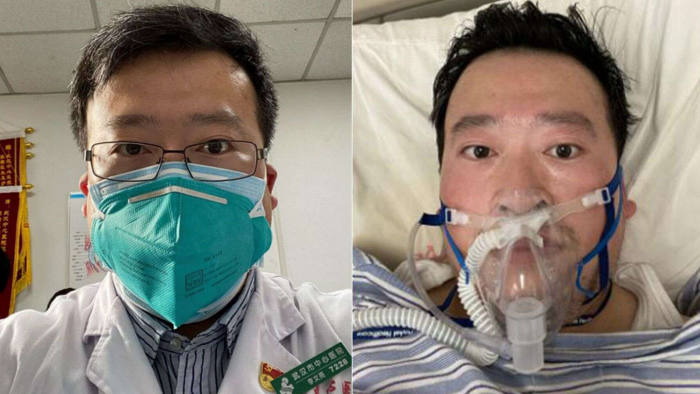
What is the coronavirus?
As the world has locked down due to coronavirus, the virus itself remains relatively unknown. Scientists only discovered COVID-19, the strain of coronavirus currently infecting the world, in December of 2019 in Wuhan, China. While all coronaviruses can cause illness in animals or humans, the COVID-19 strain is particularly infectious because it spreads “from person to person through small droplets from the nose or mouth which are spread when a person with COVID-19 coughs or exhales,” according to the CDC. The elderly and those with pre-existing conditions are at the highest risk of developing a severe illness. Thanks to scientists’ efforts, vaccinations are beginning to be distributed worldwide.
How are people reacting in China?
By posting lyrics from the Les Misérables song “Do You Hear the People Sing,” Chinese citizens evoked the rebellious chant as a form of protest. Due to fear of government reprisal, many protestors protected their information through VPNs and archiving information. Speaking against the censorship that led to Dr. Wenliang’s death, one person quoted HBO’s Chernobyl on WeChat:
What is the cost of lies? It’s not that we’ll mistake them for the truth. The real danger is that if we hear enough lies, then we no longer recognize the truth at all. What can we do then? What else is left but to abandon even the hope of truth and content ourselves instead with stories? In these stories, it doesn’t matter who the heroes are. All we want to know is: “Who is to blame.”
The people of China refuse to allow their government to control them any longer; they have demanded justice for Dr. Wenliang and all of the people killed by the deadly virus that the government tried so hard to ignore. The founder of a social media analytics company, Xu Danei, wrote “I haven’t seen my WeChat timeline filled with so much forlornness and outrage.”
After news of Dr. Wenliang’s death spread amongst China’s people, an unprecedented response began on Chinese social media. One citizen wrote, “Are you angry? If any of us here is fortunate enough to speak up for the public in the future, please make sure you remember tonight’s anger.” The hashtag #WeWantFreedomofSpeech began trending on Weibo along with #TheWuhanGovernmentOwesDr.LiWenlianganApology, attracting tens of thousands of views within hours. Li’s death was badly mishandled: media outlets revoked their reports of his death within hours of publishing them. This confusion over the actual timeline furthered the anger within the public. One user wrote, “A doctor had to die twice, that is national humiliation.” The government’s attempts at preventing mass outcry failed; their publishing of Dr. Wenliang’s death in the wee hours of the night only increased the people’s fury. The Chinese citizens refused to let his death be in vain.
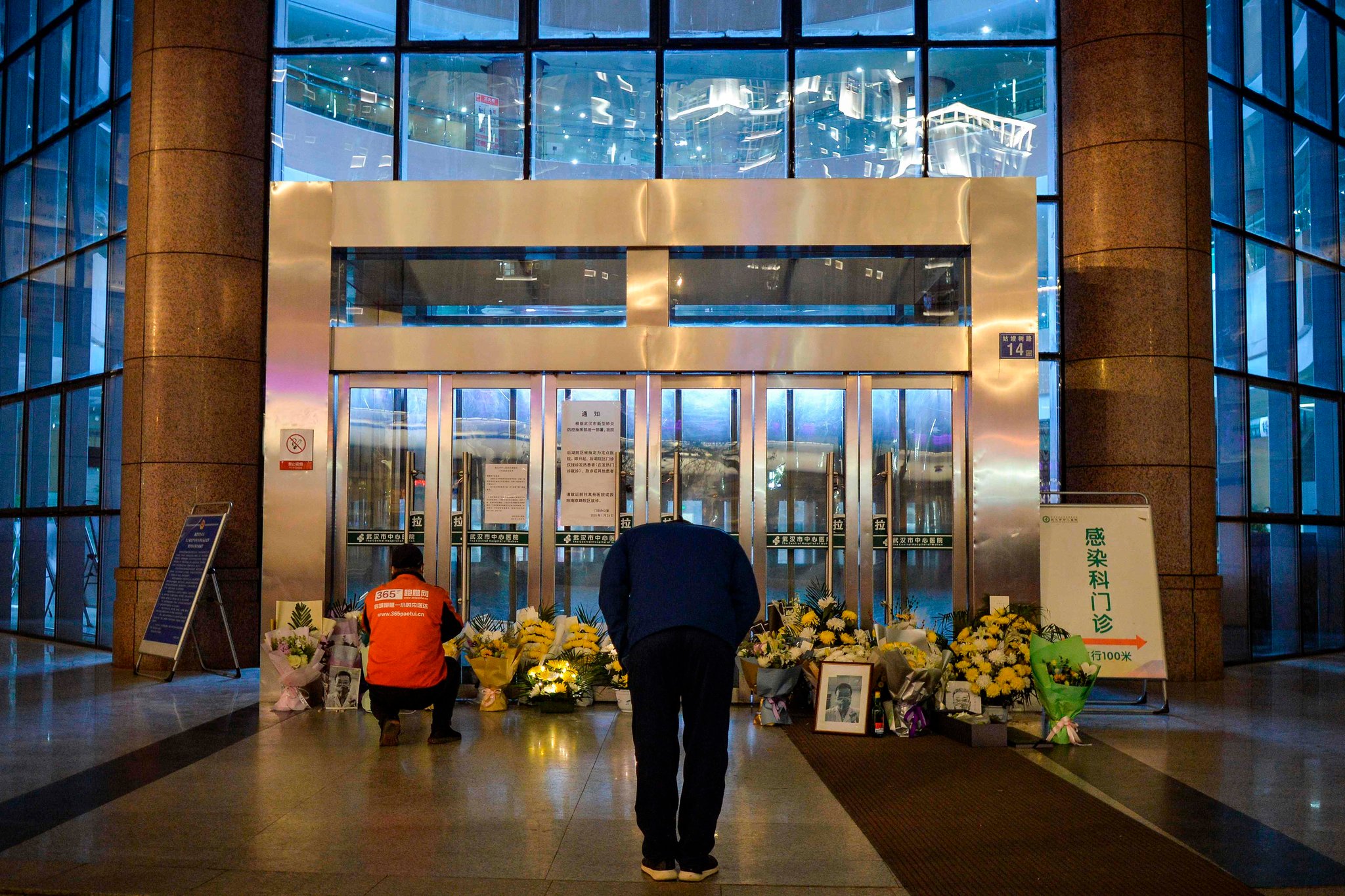
According to research published earlier this year, the terms “SARS,” “coronavirus,” “shortness of breath,” “dyspnea,” and “diarrhea” — all related to the recent coronavirus epidemic — spiked abnormally high between November 17 and December 31 on WeChat. Within five months, over 2,000 words related to the virus were censored in Chinese media. Social media circulated concerns regarding the virus much earlier than the government’s recognition of it. However, as soon as the government became aware of the virus, they did everything they could to shield it from the general public.
Chinese journalists began flocking to Wuhan, attempting to expose the government’s false information and to document the truth of the deadly virus. Donning hazmat suits and goggles, they interviewed countless coronavirus patients, putting their own lives at risk in order to spread honest information. Xiao Hui, a journalist for the Chinese news outlet Caixin, posted “I never thought in my lifetime I’d see dead bodies lying around without being collected and patients seeking medical help but having no place to get treatment… On January 22, on my second day reporting in Wuhan, I knew this was China’s Chernobyl.” Within a night, government officials seeking to censor information about the coronavirus took the post down. The government told doctors to hide information from the public and forbade them to wear isolation gowns to avoid mass panic. The Chinese government would rather protect their image than protect their people.
As the situation exploded, hospitals turned away patients, leaving many to die alone in their own homes. Their deaths were never counted in an official report, and any reports on the death count disappeared from the media within days. Whistleblowers saw “patients collapsing while waiting outside hospitals and their families kneeling at doctors’ feet begging for help.” The situation was out of control, and the government refused to do anything about it.
Journalists began using emojis, Morse code and coded language to evade censorship; they began working with rivaling companies to spread information. Everyone did what they could to counter the government’s suppression of information.
What is Chinese censorship?
While the Chinese Constitution guarantees Chinese citizens “freedom of speech, of the press, of assembly, of association, of procession and of demonstration,” realistically citizens hold little control over their public opinions and media activities. The Chinese government holds power over the media, citing the need to regulate all news sites and postings for endangering state secrets — defined as “matters that are related to state security and national interests and, as specified by legal procedure, are entrusted to a limited number of people for a given period of time,” according to the State Secret Laws and Regulations of the PRC. The vague nature of this statement and the creation of the “Great Firewall,” the internet infrastructure of censorship created by the Golden Shield Project in 1998, allows for China to hold extensive control over their citizens’ data usage and access to information. While officials refuse to release the total cost of this project, the tens of thousands of employees required to maintain it suggest a hefty price for the communist government.
As the second-largest economy in the world with over 14 trillion dollars in their gross domestic product, China prides itself on its dominant economic stance in the world. However, the People’s Republic of China continues to hold the title for worst internet freedom, with a score of only 10 out of 100 in the Freedom House’s annual Freedom of the Net Report. With more than 800 million internet users, China has “one of the most active online populations in the world” according to the US Department of State. Yet these people lack access to information on the 1989 Tiananmen Square Massacre, a government-induced massacre of hundreds of people; Liu Xiaobo, a Nobel Prize winning Chinese dissident who died in custody; and any novels that spurred revolution, like George Orwell’s “1984.” Internationally, however, the government continues to defend its use of force in incidents like the Tiananmen Square Massacre, citing it as a “vaccination” against “major public turmoil.”
The government relies on internet companies to abide by their censorship laws, making it their responsibility and liability to maintain the required level of censorship. This intricate design of censorship creates an almost impossible system to break, greatly harming the Chinese citizens’ basic human rights.
What is the Chinese government doing?
In response to the upsurge of social media outpouring against the governmental response to the coronavirus, the Chinese government quickly strengthened its censorship protocol. After the hashtag #IWantFreedomOfSpeech began trending on Weibo, the Chinese government censored the phrase in its entirety, prompting greater outrage from the general public. CNN journalist Nectar Gan tweeted: “Not allowed to speak. Not allowed to die. Now [sic] allowed to be angry. Not allowed to desire. Are we allowed to at least remember?”
In mid-February, Xi Jinping, president of China, replaced two of his top Communist Party health officials in an attempt to contain public dissidence after the Wuhan quarantine. The dismissals of the two chiefs acted as a meager attempt to place the blame upon specific individuals rather than the entire government to dissuade public anger. Calling the coronavirus outbreak a “people’s war,” President Jinping treated the virus as a political game, claiming that China “must have confidence that we will win.” Jinping further stated that the virus “has become a matter of political security,” emphasizing his duty to defeat the virus as soon as possible. This rhetoric, however, lacks the necessary empathy for the people dying that the public desires. President Jinping even refused to shake hands with his people, despite his claims that the virus was under control.
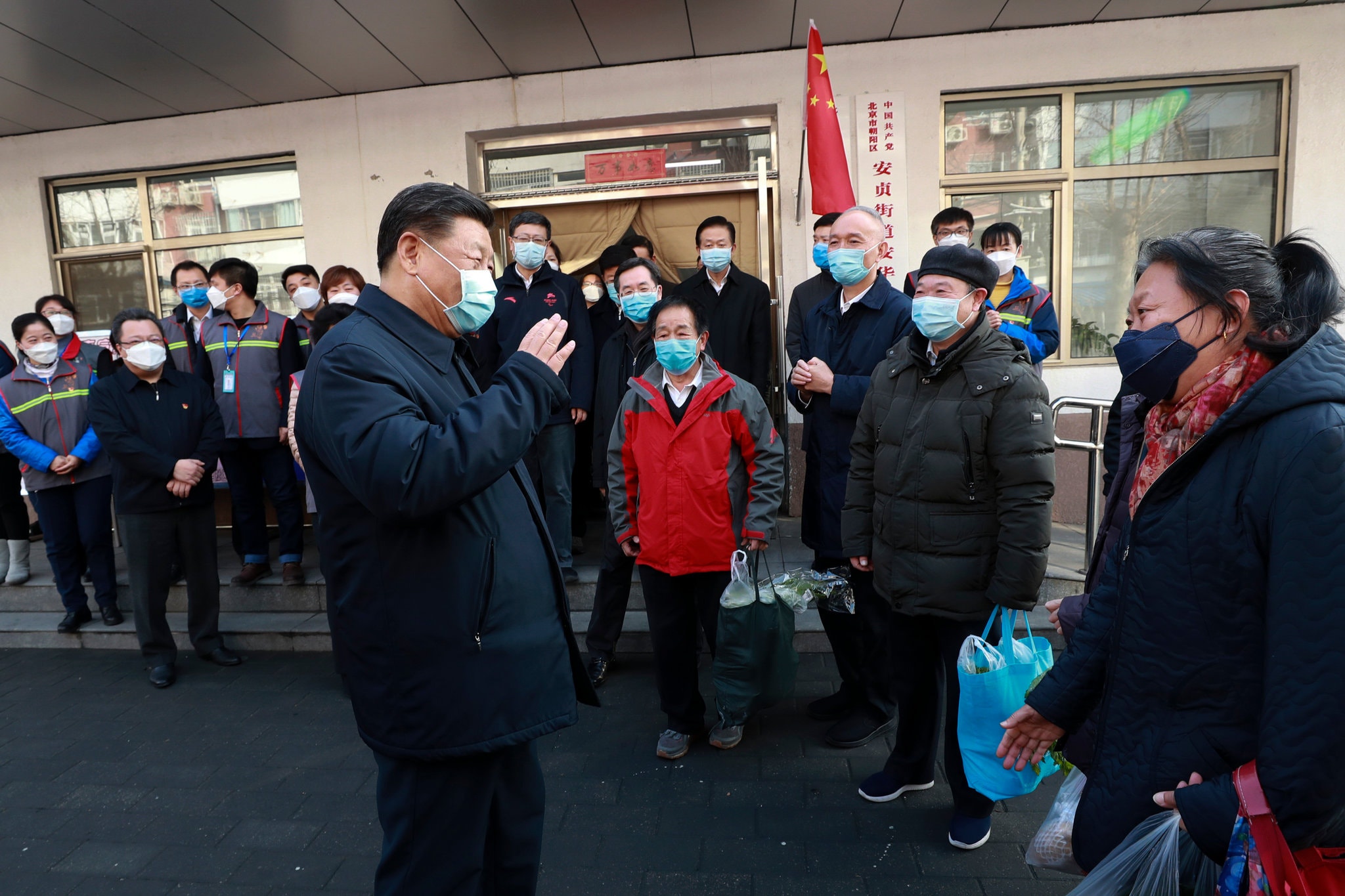
To prevent the spread of the virus as best as they could, the Chinese government required frequent temperature checks at the entrance of public spaces, sending those with fevers either home or directly to a hospital for potential quarantine. With over 20 mass quarantine centers called “fan tsung yuen,” or “cabin hospital,” built in Wuhan, China attempted to solve the problem of overcrowded hospitals; but even these added hospitals couldn’t match the spread of the coronavirus. NPR reported that people were housed in “rows of beds in repurposed stadiums and exhibition centers staffed by a handful of nurses and doctors.” The barrack-style housing units left many people dying in horrible conditions without proper care. Despite these meager attempts at control, the virus quickly developed into a global pandemic, causing millions of illnesses and deaths.
Further, the government began publishing hundreds of propaganda ads to glorify their response to the virus and counteract the public outcry. Using nationalistic rhetoric and falsified or out-of-context images, the government used their censorship to promote an entirely incorrect narrative about the coronavirus. They continued to threaten journalists into submission and censored reports that contradicted the official narrative. When individuals who lost family members to the coronavirus formed a WeChat group, censors quickly monitored it and notified the police forces. Zhang Hai, who lost his father on February 1st, had a policeman monitoring his apartment and was questioned by the police multiple times after joining the group.
What does this mean for the future of Chinese censorship?
While the Chinese government attempts to increase their censorship rules after the outbreak of COVID-19, the online revolution perseveres through journalists’ reports and citizens’ collections of primary sources. The virus hit China’s economy and social stability intensely, with the government’s attempts at covering it up only worsening their international status. Dr. Wenliang’s death only revealed the true concerns of the Chinese government — that of the stability of their Communist Party. The Party will always come before the people.
As time has passed since Dr. Wenliang’s whistleblowing, the people of China have continued to document the coronavirus epidemic in China, despite the government’s attempts at minimizing it.“Linda,” a Chinese citizen who wished to keep her identity protected, has archived information about the coronavirus since early February, stating “I feared that [these accounts] would disappear and that people’s experiences won’t be reported. I just want to keep an emotional archive of some sort for people asking for help and affected by it.” Her efforts to spread information to the world through translations and posts on Imgur, Reddit, Twitter and YouTube has greatly helped the world better understand the source of the pandemic. In doing so, however, she is putting herself at great risk of retaliation from the Chinese government. The people’s efforts to protect their right to information has challenged the lack of government transparency.
With the increase in censorship comes an increase in anger and distrust of the government. The Chinese people refuse to forget this deadly virus, no matter the government’s attempts at covering it. Only time will tell if this discontent is enough to properly challenge the intense censorship of China and induce change.
Featured Image: The Atlantic
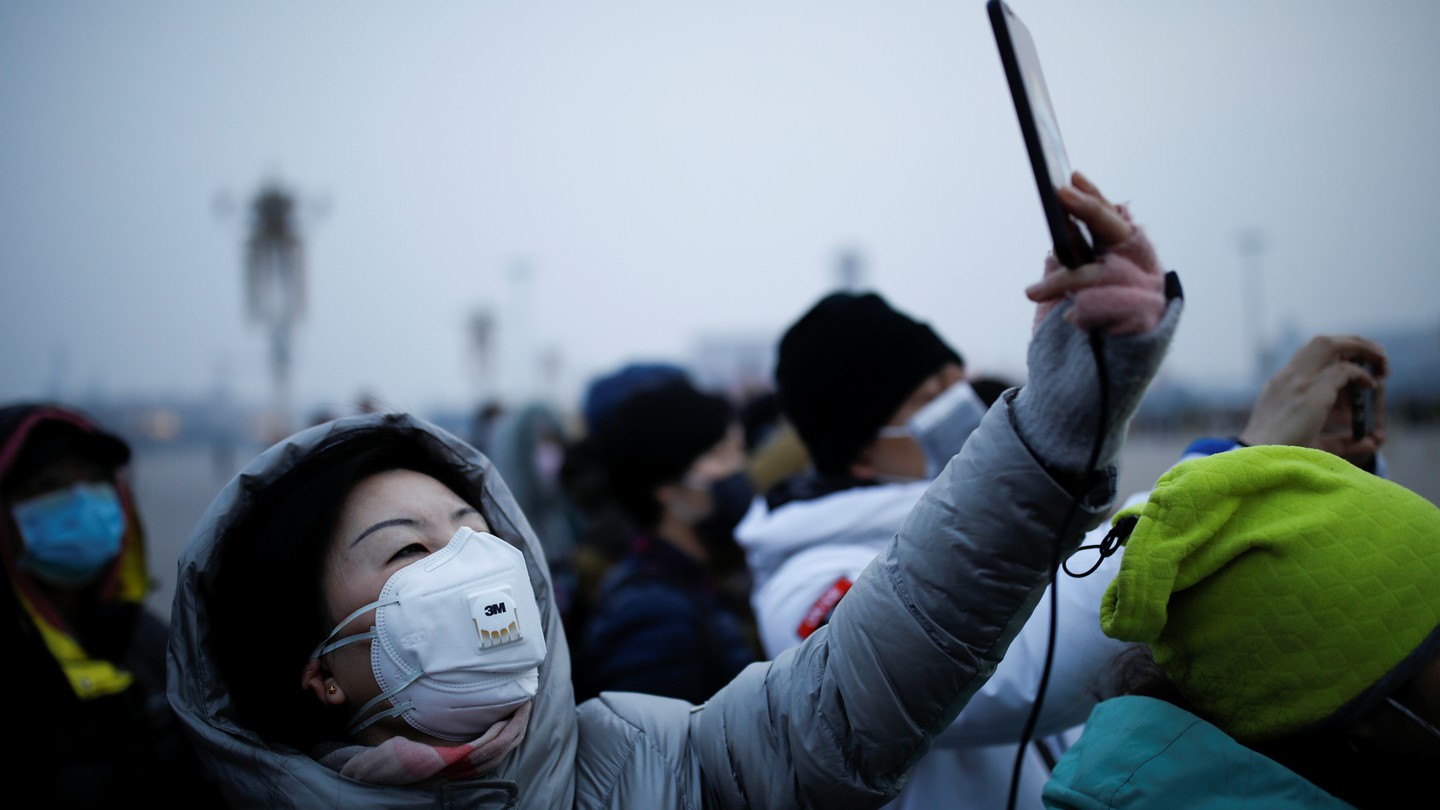

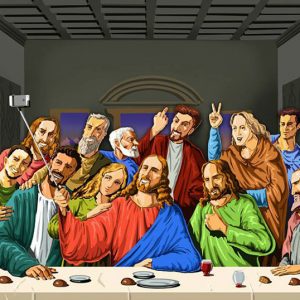



Comments are closed.